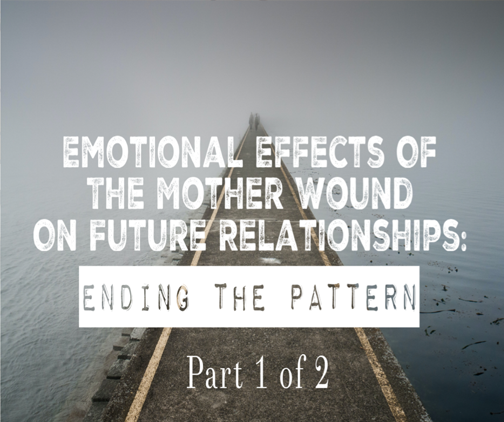On my healing journey, I continue to struggle with the knowing that I was just a “thing” to the mom who adopted me. A thing that was wanted when it benefited, and tossed aside when it didn’t. The knowing is what hurts. It hurts because the promise of Psalm 68:6 is that God sets the solitary in families, not teases them with it.
I woke up today, with my mom’s words once again looping in my thoughts:
I have nothing to offer you. Why are you here? We don’t want your help. No, I will not spend time with you. You’re not one of us. You’re nothing.
My mom is a pastor, charismatic and full of laughter and smiles. Her heart to be available for the community seems endless. One day during service, she came up to me and whispered in my ear, “I couldn’t love you before, but I can now.” I immediately stopped crying and hugged her. I thought the battle was over. It wasn’t. Her walls were back up by the time the service ended.
Instead of being included in things like birthdays, I was told I wasn’t invited. We didn’t celebrate my own or the day of my adoption. Relationships with other family members were discouraged and interfered with to a point that my every step became a fearful one. Punishment and ghosting followed any attempt on my end to set a boundary or to stand up for myself. I never felt like I belonged or mattered unless for a split moment my mattering happened to be in front of other people. For that reason, she had no interest in quality time with me, even when I begged for it. There was no getting to know her heart and she definitely didn’t want to know mine.
So why an adoption? I’ve had to learn the hard way that it was never me that she wanted. It was just her own hole that she was trying to fix. This made devaluing and spewing me out easy because she made no investment in us.
When I hear the word family today, I want to cry. Being adopted for a second time wiped out my history. It permanently ended my legal relationship with my brother. These are consequences I have to live with. The worst is saying, “yes, those are my parents,” when someone asks, knowing they have no interest in seeing me, knowing me, or being a positive part of my life.
The fight to not hold bitterness is real. In the introduction of Lysa Terkeursts’s book, Forgiving What You Can’t Forget, she writes:
Staying here, blaming them and forever defining your life by what they did will only increase pain.
I go back to those words often. I pray, “God, how do I let go of holding on to the feeling that I’m trash not worthy of being treated well? How do I stop this pain from spilling over into every future relationship?”
A part of me never wants closeness with anyone again. Part of me struggles to believe kind words when I hear them. I sometimes wonder, “Is this real, or do they have an agenda, too?”
Genuine repentance may never come, but future relationships don’t deserve to pay the price for the words and actions of another. Especially from a mom who is herself emotionally wounded and fighting her own internal battles.
Going after complete healing is my responsibility.
Recently I’ve come to accept that I’ve lived as a codependent attracted to emotionally absent, abusive and narcissistic personalities. The chaos of being called names, sworn at, treated like I’m nothing—I know how to respond to that and hide it. I’m wary of healthy relationships where I’m treated well, with mutual honor. I expect the sucker punch. This is the pattern that needs to end.
That’s the thing about the mother wound. It goes so deep that it can affect every other area—the spouse we choose, the people we engage with, how we react and respond within those relationships, the level of confidence we hold, and how we carry ourselves through life.

